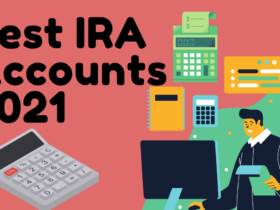So when begins his professional income to decline, even if you can deal with your life without the accompaniment of living proudly retirement and pension plans provide financial protection. Stay tuned inflation higher costs increasing, the retirement planning has become all the more important. See about Retirement Guide to Selling Investment.
What Is a Pension Plan?
A pension plan requires an employer to contribute to a pool of set aside funds for the benefit of the future retirement of a worker that plan. The money pool is invested on behalf of the employee and generates income to workers on retirement income on investments.
In addition to the employer’s required contribution to a certain pension plan is a voluntary investment component. A pension plan is a worker to help fund may allow you to contribute part of their current income from wages into an investment plan for retirement. Employers can match a portion of the annual contribution of workers are dependent on a certain amount of percentage or dollar.
Read Also- Planning for Retirement in 2021
Types of Pension Plan-
1.Deferred Annuity
Systematic premium or working a lump sum premium pension period does not begin after the completion of taxation (until you withdraw the funds)
2. Immediate Annuity
Investment on lump sum investment pension permission premium only starts immediately after income tax-exempted tax. Nominees can claim pension or fund after the policyholder passes away.
3. Annuity Certain
Pension can choose a specific term policyholder period (eg, age 65-70). Candidates can claim for pension after the death of the policy holder.
4. Cover Pension Plan
Comes with a “cover” policy – is the policyholder’s dependents are entitled to a lump sum he / she goes towards the fund to build large premium is not insured amount is exhausted
5. Life Annuity
Pension option to pay with a husband or wife to death – spouse continues to receive after the death of the policyholder
6. National Pension Scheme
If you want to get a regular pension after retirement, the Pension Fund Regulatory and Development Authority (PFRDA), regulated by the National Pension Scheme or NPS, is a popular option. With NPS, you can contribute to a pension account during your working life. Your fund is invested in a mix of debt and equity markets as per your choice. Once you are 60 years old, you can withdraw a portion of the investment as a lump sum and use the remaining amount to purchase an annuity that will guarantee a regular income.
7. Pension Funds
PFRDA has authorized as many as six companies for proposal pension funds in India. But what is a pension fund? Pension Fund You are required to invest a fixed amount for a fixed period of time in a fund of your choice. Fund providers generally offer many different types of funds to suit different investors. As the importance of the fund increases, one makes their investment in them. After retirement, you can withdraw the entire amount or remain invested and get regular income.
Why do I need to plan for my retirement?
- Increasing retirement years:– With the rise in average life expectancy in India, it has become increasingly important to plan for a long term retirement. Life expectancy figures indicate how long an average person lives. In India, the average life expectancy of a person 60 years of age is 17.5 * years. This means that an average Indian lives to the age of 77.5 years. Therefore, you need to start planning in advance to maintain your lifestyle and take care of other expenses for such a long period.
- Medical expenses: A major concern with the aging unexpected medical expenses. 15-17% ^ increasing every year, medical costs such as long as you can be difficult before the management plan for them.
- Financial independence post retirement: You want to live your life on your terms after your retirement. However, more than one 65% * persons over 60 are dependent on others for their daily expenses. This shows that it is important to plan for your retirement and to ensure your financial independence.
Benefits of Retirement Plans:
- Guaranteed regular income for life: With the retirement planning, you can get a regular pension for your spouse lives.
- Security for your children in your absence: Some retirement plans, will receive a lump sum for their children without both you and your spouse. It helps you leave behind a legacy for your children.
- Tax benefits: Also scheduled to take advantage of a comfortable retirement, you may also benefit ** Premium ₹ enjoy paid to the extent of 1.5 million. Also, at the time of maturity, pay-outs have been received are exempt from tax completely.
Pension Plan vs. Pension Funds
When a defined benefit plan is made up of contributions accumulated from employers, unions, or other organizations, it is commonly known as a pension fund. Run by a financial intermediary and managed by professional fund managers on behalf of a company and its employees. Pension funds control relatively large amounts of capital and represent the largest institutional investors in many countries. Their actions can dominate the stock markets in which they are invested.
Feature of Pension Plan
#1. Guaranteed Pension/Income
After a trip and after retiring stable Vacation (deferred plan) income or invest immediately (immediate plan), you can get on how to invest. This ensures an economically independent life after retirement. You can make a rough estimate using a retirement calculator so that you may need for your retirement.
#2. Liquidity
Retirement plans are a product of essentially low liquidity. However, some plans also allow return during the accumulation phase. This will ensure the money to fall back on during emergencies without having to rely on others for a bank loan or financial requirements.
#3. Tax-Efficiency
Some pension schemes provide tax exemption specified under Section 80C. If you want to invest in a pension scheme, then offer significant tax relief under the Income Tax Act, 1961, Chapter VI A. Sections 80C, 80CCC and 80CD specify them in detail. For example, the Atal Pension Yojana (APY) and the National Pension Scheme (NPS) are subject to tax deduction under Section 80 CCD.
#4. Vesting Age
This is the age when you start to receive a monthly pension. For example, the pension scheme lies at the age of 45 years or 50 years to keep its minimum. Although some companies lies age allowed to be up to 90 years it is flexible to the age of 70 years.
Read Also :- How to Invest in Stocks 2021: A Beginner’s Guide
Pension Plan FAQs-
Ans-
1. Set a budget – list out 30 things in order of priority breaking them into short, medium, and long term goals. Allocate your current income to get an estimate.
2. Evaluate your current financial position – examine your current financial position versus your financial goals, be more proactive about savings, investments, and income.
3. Identify your income sources – consider all your income sources including insurance, investment portfolios, assets, and an option to do a part-time job to take charge of your retirement funds.
4. Are you running short? Re-evaluate your investment, make catch-up and bite-sized contributions to fill the gap.
Ans- A 401 (k), the pension is often seen as the clear winner. However, the smart use of a 401 (k) plan is the benefits that one can make for a comfortable retirement. Start saving early by making the most of your company-sponsored retirement plan, maximizing your employer’s match, and watching your balance rise.
Ans- Many of us view life insurance as a way to protect a family with death benefits. This is not just a savings or investment vehicle, but if necessary, it can provide flexibility and access to the cash value of a policy, making it a valuable addition, if properly utilized in a comprehensive retirement income plan is.
Following a proper type with the right amount of life insurance in your retirement will accomplish many things. It can help protect your income, provide tax free cash flow, help tax management overcome your loved ones any financial risk and thereby improve the total income in your portfolio.








